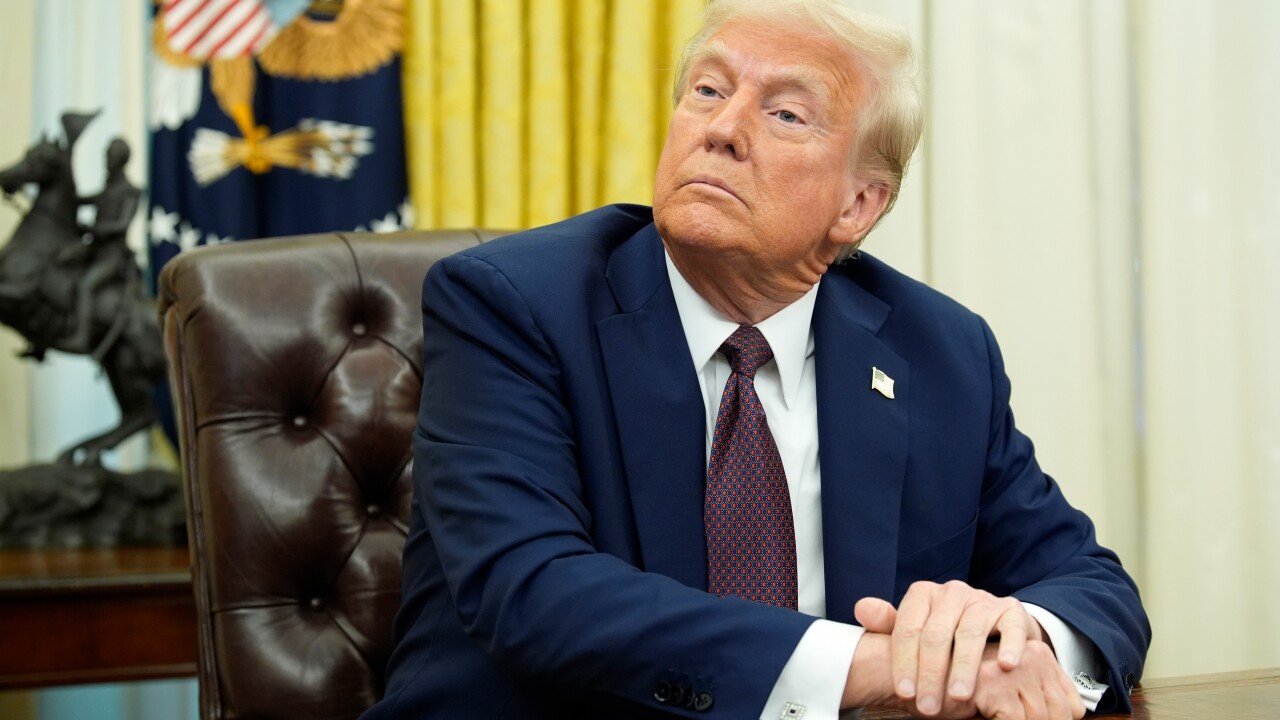Wells Fargo has struggled for the past nine months to move beyond its phony-accounts scandal, but lawmakers appear determined not to let that happen.
For Democrats, the scandal is a prominent symbol of big-bank misbehavior, a reminder of why bank regulation should not be eased. Sen. Elizabeth Warren, D-Mass.,
But for House Republicans, the incident remains in their sights as well. House Financial Services Committee Chairman Jeb Hensarling's staff recently released a detailed report focused on the Consumer Financial Protection Bureau's handling of the Wells matter. The report didn't criticize Wells, but it didn't need to. Every reference to the scandal helps keep it fresh in the minds of policymakers and the public.

"Any mention of Wells gives lawmakers, shareholders and consumer advocates another platform to relate the litany of Wells' offenses," said Isaac Boltansky, director of policy research at Compass Point Research & Trading.
Aaron Klein, a fellow at the Brookings Institution and a policy director at the Center on Regulation and Markets, said the Wells scandal is fundamentally different from other bank scandals because it undermined the public's trust.
"The nature of the misdeed is so readily understandable and accessible for political actors to harp on and for the public to demand more action," said Klein, a former deputy assistant secretary for economic policy at the Treasury Department.
The Wells scandal has been political fodder since September, when the bank paid $190 million in fines and restitution after firing 3,500 employees for opening up to 2 million unauthorized bank and credit card accounts.
Consumer advocates and Democratic lawmakers have seized on the Wells scandal to show their support for the CFPB and tough bank regulatory standards, while Republicans are using Wells to prove the consumer agency is overrated and needs to be reined in.
"This scandal has some juice with Republicans because Wells is collateral damage and they continue to charge that the CFPB didn't do enough," Boltansky said. "There's an element there that will keep it in the news."
The battle between Hensarling and CFPB Director Richard Cordray turns on the Wells case. Hensarling's staff charges that the CFPB was a minor player in the Wells investigation, and has refused to cooperate with lawmakers because it wants to portray itself as more central to the incident. Cordray, in turn, responded Friday by claiming that his agency worked cooperatively with other regulators to help secure penalties and significant changes from Wells.
On Tuesday, the Center for Responsible Lending jumped into the fray, sending a letter to Hensarling criticizing the staff report that claimed the CFPB never conducted an investigation into Wells.
"Instead of criticizing the Consumer Bureau for working in conjunction with other regulators to stop one of the most widespread consumer frauds in the nation's history, the committee should be working to ensure it remains a strong agency with the tools it needs to prevent, stop, and remedy abusive practices," the group wrote.
The majority staff report criticizing Cordray was released a week after House passage of the Financial Choice Act, which would eliminate the CFPB's independent funding and strip the bureau of supervisory and enforcement authority over large banks like Wells.
Just as Republicans focus on the CFPB's role in investigating the scandal, Warren and other Democrats appear to be trying to reignite pressure on Wells' board to resign. In her letter, Warren outlined the legal basis for the Fed to remove board members.
Yet her tactic seems unlikely to work.
The letter is "political posturing," said Kevin Barker, a senior research analyst at Piper Jaffray & Co. "If the board is not doing their job, it should be the shareholders that vote them out, not politicians."
But the tactic does keep Wells name in the spotlight.
It's a "novel statutory strategy that will surely prolong the bank's time in regulatory purgatory," Boltansky said. Though the Fed is unlikely to dismiss any Wells directors, he said, "ultimately, the combination of headline and investor pressure is likely to lead many of the holdover Wells Fargo board members to exit."
Shareholders at Wells' annual meeting in April voted to re-elect 12 members and elect three new ones, including Sloan. Many received slim majorities, including Enrique Hernandez Jr., Federico Pena, Stephen Sanger and Cynthia Milligan. Milligan and another director, Susan Swenson, are holdovers from Wells' 1998 merger with Norwest and have been on the bank's board for 25 and 23 years, respectively.





